Whether you are making your first hire, or are looking to hire additional employees as your business grows, you want to make sure you are moving forward with the employees who will help your business to thrive. 69% of employers said their companies were adversely affected by a bad hire last year, according to a recent study by CareerBuilder. 41% of those businesses estimated the cost of a bad hire was over $25,000! So how do you know if the person you’ve hired is really your next star employee, or just charming in an interview chair?
1. Understand who you are and what you want
Begin by having a deep understanding of your company culture because when you are able to outline your values and philosophies you will also be able to recognize them in the person you’re interviewing. Always hire for fit over skill – skill can be taught, but cultural fit cannot. Also, be sure to understand the difference between roles and tasks and clearly define what you’re looking for in both. A role is the space someone holds in the company in order to play an active role in the culture, while tasks are simply things to get done in the day. If you create detailed job descriptions for each role and task in the company, you will be able to prioritize what your team actually needs in terms of complementary skills.
2. Hire slow, fire fast
As evidenced in the opening paragraph, a bad hire is very costly, so although it is tempting to slot someone into a position to match the pace of growth of your business, you must be patient. Take the time to screen properly and thoroughly. Always call references, and do a Google search of your own. Use resumes, references, and background checks to screen out, and interviews to screen in. Most importantly, don’t force a hire. If it’s taking you longer than it should to make up your mind about a candidate, you are probably trying to make it fit when it just doesn’t. If it’s evident you made the wrong decision on a hire, let them go quickly instead of burning out more time, money, and energy.
3. Invest time in developing your interview process
You can’t find out what you need to know without taking the time to determine the right questions. Zappos is a company who has done a great job with their interview process. By investing significant time and resources into formulating their interview process, they are able to quickly determine if a candidate is a good fit for their unique and quirky environment. For example, something they ask every candidate is, “how weird are you?” This indicates to the candidate the type of culture they may be getting themselves into, and allows them to open up and share more comfortably, while also allowing Zappos to determine if the candidate is a little too straight-edge, or a little TOO weird for them.
It’s also recommended to ask a lot of situational questions to try to get a better sense of personality (because unfortunately you can’t just ask them if they’re lazy or a jerk). John Schwarz, CEO of workforce analytics company Visier, suggests asking questions like:
- Who are you going to be 10 years from today?
- Why do you work?
- What makes you get up in the morning and do what you do?
4. During the interview…
- Be open and honest about what it’s like to work at your company – this sets realistic expectations and allows both parties to determine fit.
- Don’t talk too much – by allowing the candidate time to talk and ask questions you will find out more about them.
- Have them complete an assignment that uses the skills required for their job – this may mean doing a case, or going down to the warehouse to do some manual labour if that is in their job description.
- Find out why they left their previous job – the reason will tell you tons about their work ethic, priorities, and personality.
- Go for a walk with them, even if it’s just an office tour – this will allow you to get a better sense of their personality than you would in the formal interview setting.
5. Solidify the onboarding process
First impressions matter, and when you’ve found the right employee, you want them to stay. Have a consistent, company-wide strategy for every new hire that will instantly engage them. Try to get administrative work done via online platforms before the first day so the new hire will have plenty of time for team interaction and starting their real job. Remember, the onboarding process is not just the first day, so invest time in constructing an overall ‘wow’ experience that will increase engagement and decrease turnover for your company.
References:
CareerBuilder. Nearly Seven in Ten Businesses Affected by a Bad Hire in the Past Year. 2012.





